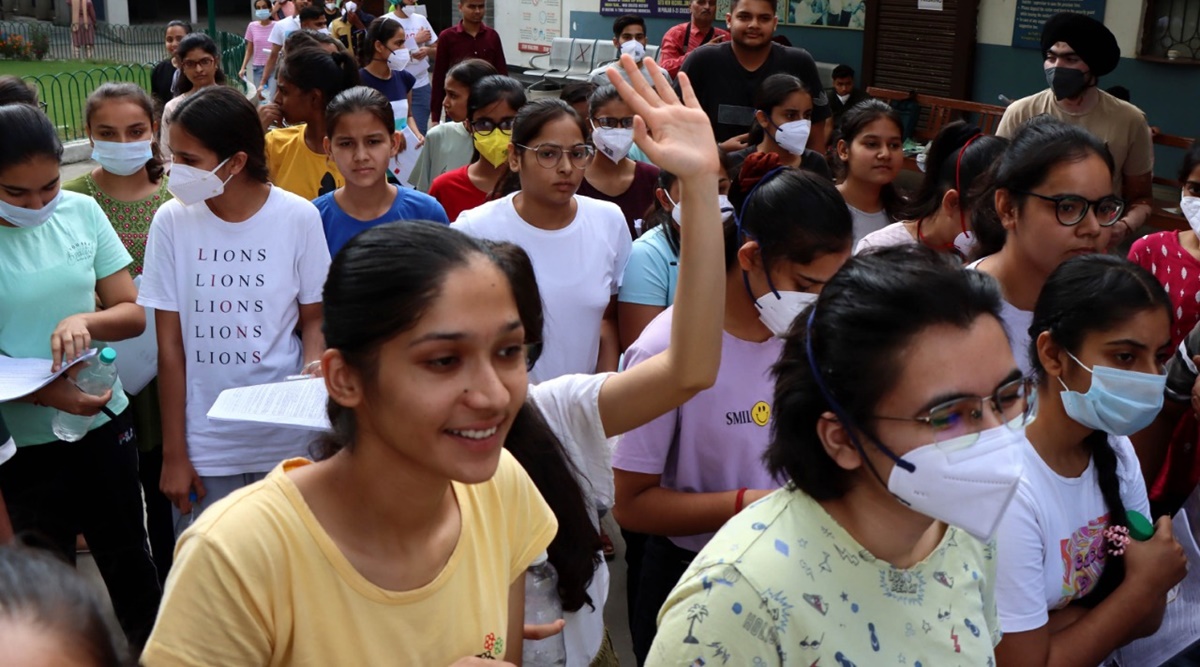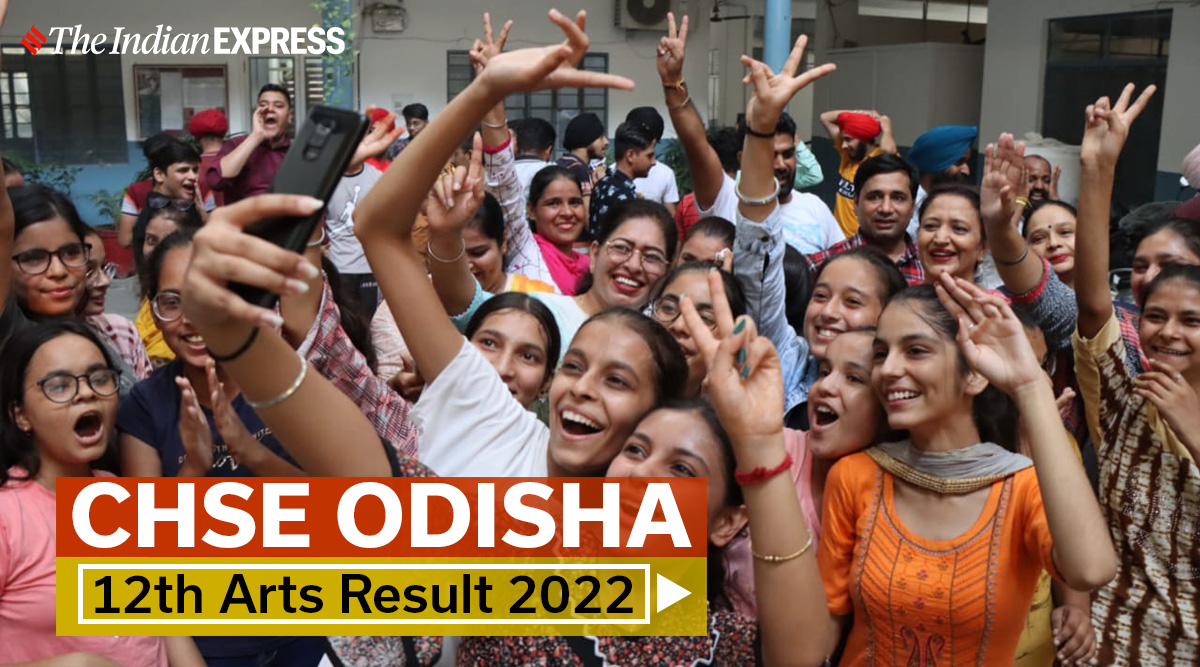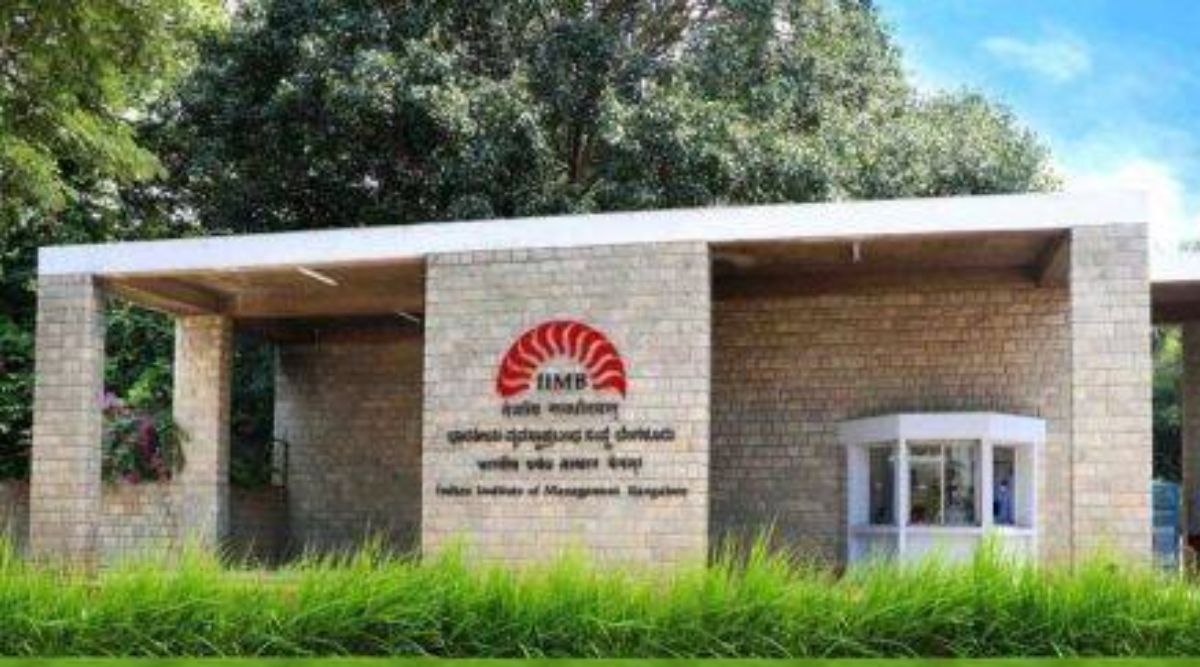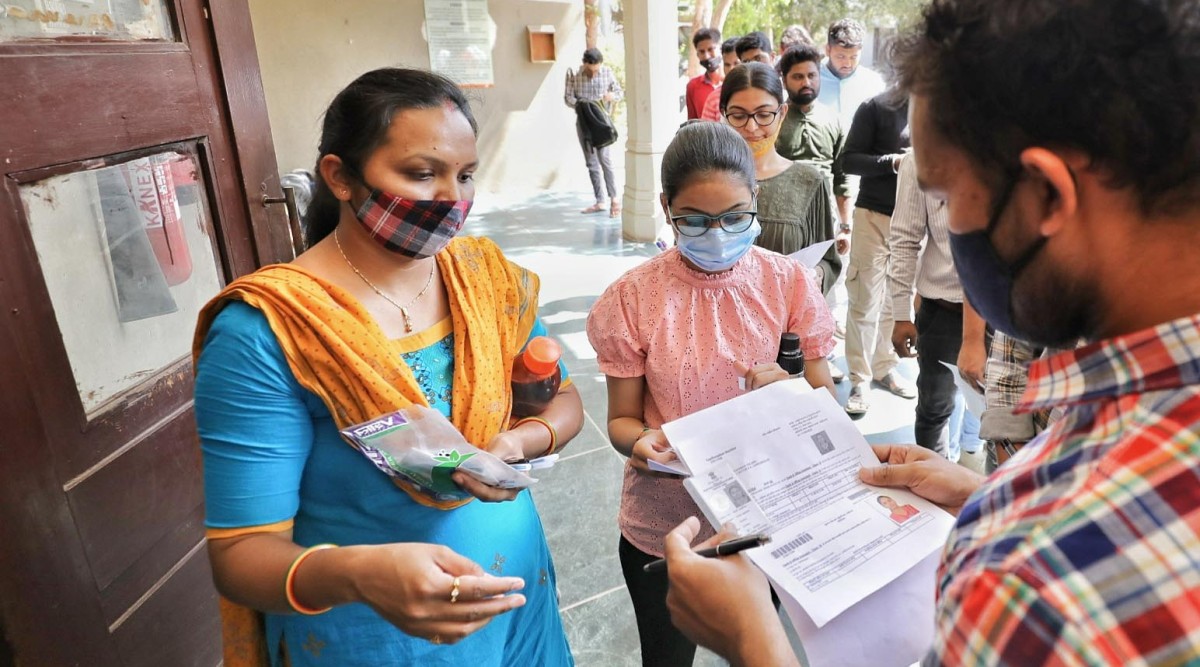EVEN as the Tamil Nadu government has been opposing NEET saying the national medical college entrance exam skews the playing field against rural students, students from the state have consistently improved their performance.
In four years, records show, the number of students from Tamil Nadu who were in the top 95 percentile of students qualifying NEET has doubled. This, as the number of students from TN who take NEET has grown by 7.38 per cent from 2019 to 2022 — the corresponding national figure is 16.3 per cent.
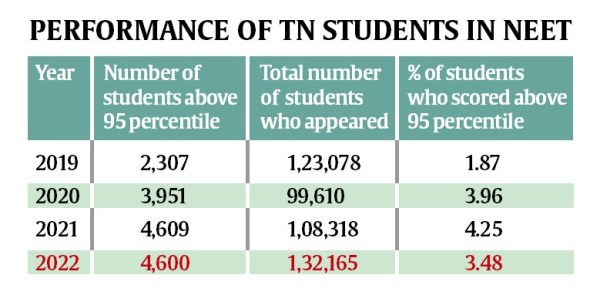
In 2017-18, a Supreme Court ruling making NEET the only single-window examination for entry into any medical school in the country came into effect. Before NEET, admission to medical colleges in Tamil Nadu was mainly based on board marks.
Since 2017, the state has tried to exempt itself from the exam. Not allowing NEET was the electoral promise of the ruling DMK party. Chief Minister M K Stalin introduced a Bill in the Assembly seeking exemption for Tamil Nadu students from NEET which was unanimously passed and now awaits the President’s assent.
Data obtained by The Indian Express from the National Testing Agency (NTA), which conducts NEET, shows that the number of students from the state who figured among the top scorers has doubled in four years.
To secure a seat in a government medical college, a student needs to get a high score or percentile and merely qualifying in the exam isn’t enough and hence the focus of medical aspirants has been to be in the top percentile of students qualifying NEET.
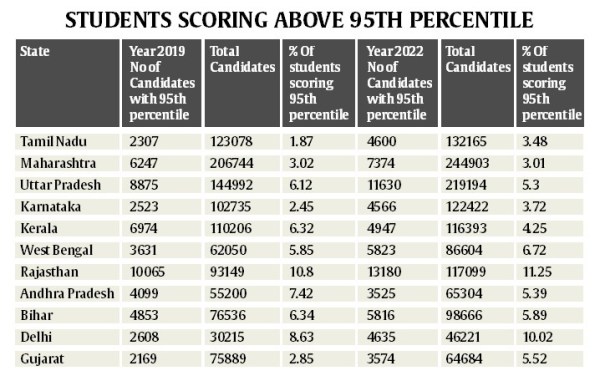

Data from 2019 to 2022 shows that the total number of students who scored in the 95th percentile and above in Tamil Nadu has gone up from 2,307 students or 1.87% of total candidates appearing for the exam from the state to 3.48 percent or 4,600 candidates in 2022.
Nationally, in 2022, 88,343 of 17,72,329 candidates who appeared across India scored above 95th percentile and above, which is around 4.9% of total candidates.
Tamil Nadu’s performance amongst top scorers is better than states like Maharashtra which has the largest number of candidates appearing for the exam.
In Maharashtra, 3% of appeared candidates scored in the 95 percentile and above in 2022. On the other hand, Uttar Pradesh, which had the second-largest number of NEET candidates, saw 5.3% of its 2.14 lakh candidates in the 95 percentile and above this year.
Tamil Nadu’s political parties have argued that NEET deepens disparities since rural students cannot afford coaching as their urban counterparts and are, therefore, disadvantaged in the exams.
A nine-member panel, tasked by the state government to assess the impact of NEET on medical admissions, found that the proportion of rural students in Tamil Nadu’s medical colleges fell from an average of 61.45% (pre-NEET 2016-17) to 50.81% (post-NEET 2020-21).
According to the committee’s report, the share of English-medium school students in medical colleges has increased from 85.12% to 98.01% since NEET. On the other hand, Tamil-medium school students now make up just 1.99% (2020-21), down from 14.88% four years ago (2016-17).
Newsletter | Click to get the day’s best explainers in your inbox
Speaking to The Indian Express, Professor Jawahar Nesan, a member of the state government committee, said: “I will not deny that the performance of students from Tamil Nadu has improved in the last two years. There has been a slight uptick, yes. But reasons for opposing NEET are still valid. This entrance exam encourages coaching. As a result, most of those qualifying NEET are students who can afford to enrol for coaching. This exam is leaving behind a section of our society and exacerbating the rural-urban divide.”
Meanwhile amongst all states, Rajasthan — where Kota considered to be the coaching hub of the country, is located — has the highest percentage of students scoring above 95th percentile: 11.2 per cent in 2022.
!function(f,b,e,v,n,t,s)
{if(f.fbq)return;n=f.fbq=function(){n.callMethod?
n.callMethod.apply(n,arguments):n.queue.push(arguments)};
if(!f._fbq)f._fbq=n;n.push=n;n.loaded=!0;n.version=’2.0′;
n.queue=[];t=b.createElement(e);t.async=!0;
t.src=v;s=b.getElementsByTagName(e)[0];
s.parentNode.insertBefore(t,s)}(window, document,’script’,
‘https://connect.facebook.net/en_US/fbevents.js’);
fbq(‘init’, ‘444470064056909’);
fbq(‘track’, ‘PageView’);


